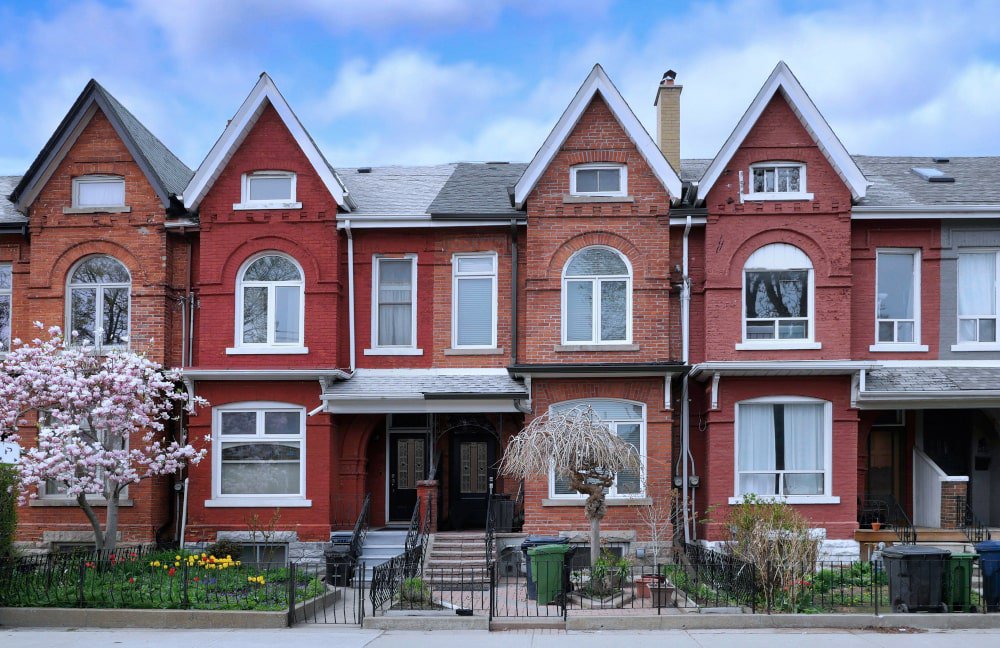Income Needed to Buy a House in Toronto: Quick Answer, Scenarios & Mortgage Requirements

Thinking of buying in Toronto? This definitive, data-driven guide breaks down the income you need. We’ll start with a quick answer for common price points, then dive into lender rules (GDS/TDS ratios), the stress test, down payment and amortization effects, carrying costs, debts and credit impact, comparisons with the GTA, first-time buyer programs, and a checklist to qualify.
| Quick Answer |
|---|
| In Toronto’s current market, a household income of roughly $131,000–$147,000 is needed for a $700,000 condo; about $181,000–$204,000 for a $1,000,000 house; and roughly $235,000–$265,000 for a $1,300,000 detached home. These estimates assume a 20% down payment, a 25-year amortization, and a “stress test” interest rate near 7.5%, with typical property tax and heating costs and no other debts. (Your results will vary based on actual mortgage rates, condo fees, debts, and other factors) |
What income do you need to buy a house in Toronto right now?
Buying a home in Toronto requires passing Canada’s mortgage “stress test” and meeting lender debt ratio limits. Based on typical assumptions for 2025, here are the approximate household incomes needed for different-priced properties in Toronto:
- $700,000 condo: ~$131,000–$147,000 income
- $1,000,000 house: ~$181,000–$204,000 income
- $1,300,000 detached: ~$235,000–$265,000 income
The lower end of each range reflects scenarios where you have minimal other debt and can stretch to the maximum Total Debt Service ratio (~44% of income). In comparison, the higher end reflects the stricter Gross Debt Service limit (~39% of income). In practice, most borrowers should stay within the 39% housing cost guideline for affordability
Assumptions used:
- Down payment: 20%
- Amortization: 25 years
- Stress-test rate: ~7.5%
- Carrying costs included: property tax, heating, and 50% of condo fees (if applicable)
- Other debts: none assumed
If you carry student loans, car payments, or credit card balances, the required income rises because of Total Debt Service (TDS) limits. Likewise, a higher down payment or longer amortization can bring your minimum income down.
How much do I need to make to buy a house in Toronto based on lender GDS/TDS rules?
Canada’s mortgage system relies heavily on two affordability ratios: Gross Debt Service (GDS) and Total Debt Service (TDS). Understanding how these work is key to seeing how lenders translate your future housing costs into a minimum required income.
GDS vs TDS:
- Gross Debt Service (GDS) : max 39% of gross income can go to principal, interest, taxes, heating (PITH).
- Total Debt Service (TDS) : max 44% once all other monthly debts are factored in.
Worked example:
For a $1M home:
- $800,000 mortgage (after 20% down)
- At 7.5%, payment ≈ $5,700/month
- Add $400 taxes + $200 heating → $6,300 PITH
- Under 39% GDS, you’d need ~$16,150 monthly income (~$194,000/year).
What salary is required to buy a $1,000,000 Toronto home versus a $700,000 condo?
Different property types and price points in Toronto come with very different mortgage sizes and carrying costs. Comparing a $700,000 condo to a $1,000,000 home helps illustrate how required incomes scale with purchase price.
(Assumptions: 20% down, 7.5% stress, 25y amortization)
| Home Price | Down Payment | Mortgage | Stress-Tested Payment | Taxes/Heat | Required Income |
|---|---|---|---|---|---|
| $700,000 | $140,000 | $560,000 | $4,000/month | $350 | $131k–$147k |
| $1,000,000 | $200,000 | $800,000 | $5,700/month | $600 | $181k–$204k |
| $1,300,000 | $260,000 | $1,040,000 | $7,400/month | $700 | $235k–$265k |
Sensitivity at ±1% rate
- At 6.5%, the required income drops ~8–10%.
- At 8.5%, the required income rises ~9–11%.
How do mortgage income requirements in Toronto change with down payment and amortization?
When 30 years helps
Stretching amortization from 25 to 30 years reduces monthly payments by 7–10%, thereby lowering the required income. Some lenders allow this on uninsured mortgages (20%+ down).
CMHC premiums under $1M
For homes under $1M with <20% down, CMHC insurance is required. While this allows for smaller down payments, the premiums are added to your mortgage balance, increasing payments and the required income
How does the federal stress test change the income needed to afford a home in Toronto?
Current benchmark concept
The stress test requires lenders to use the higher of your contract rate + 2% or the federal benchmark. With rates near 5.5–6.0%, that means qualifying at ~7.5–8%.
Why lenders must use it
The rule ensures borrowers could still afford payments if rates rose. It reduces borrowing power by roughly 15–20% compared to actual contract rates.
Which ongoing costs in Toronto count toward affordability (and how can you lower them)?
Beyond the mortgage payment itself, several recurring costs directly affect how much home you can qualify for in Toronto. Lenders build these into affordability calculations, so it’s important to understand what they are and how to manage them.
What counts in PITH
- Property tax: ~0.63% of assessed value annually
- Heating: lenders use ~$150–$200/month minimum
- Condo fees: 50% added to GDS
- Insurance: often factored separately by lender
Cost-reduction tips
- Buy energy-efficient homes to lower heating costs
- Shop around for insurance annually
- Avoid buildings with very high condo fees, which directly cut your max mortgage size
How do other debts and your credit score alter the required income to buy?
While income and housing costs set the baseline, lenders also factor in your broader financial picture. Other debts and your credit score can significantly shift the income needed to qualify for a Toronto home.
Debt-paydown impact:
- If you carry a $300/month car loan:
- At 44% TDS, this reduces your maximum housing payment by ~$700.
- Paying it off boosts mortgage room significantly.
Credit-score bands:
- 760+: best rates
- 680–759: still good
- 600–679: higher rates, more income required
- <600: limited options, B-lenders only
How does Toronto house affordability compare with nearby GTA markets?
Price & income comparison
| City | Avg Home Price | Required Income (20% down) |
|---|---|---|
| Toronto | $1,000,000 | $181k–$204k |
| Mississauga | $950,000 | $173k–$195k |
| Brampton | $900,000 | $164k–$185k |
| Durham | $850,000 | $155k–$175k |
| York Region | $1,100,000 | $200k–$225k |
Commute trade-offs
Moving one or two transit stops out can save ~$10k–$20k in required household income, though it comes at the cost of longer commutes.
What first-time buyer rebates and programs reduce the income you need in Toronto?
For those entering the market for the first time, a variety of government programs and tax rebates can ease the burden. These incentives don’t change your lender ratios directly, but by reducing upfront costs or boosting your down payment, they effectively lower the income needed to qualify.
Rebate checklist:
- Ontario Land Transfer Tax Rebate: up to $4,000
- Toronto MLTT Rebate: up to $4,475
- RRSP Home Buyers’ Plan (HBP): withdraw up to $35,000/person
- First Home Savings Account (FHSA): $8,000/year contributions, tax-free growth
Using FHSA/HBP
Combining HBP and FHSA can accelerate down payment savings, reducing your loan size and income requirement.
What documents and timeline will lenders ask for when verifying income in Toronto?
Once you’ve identified a target property, the lender needs proof that your income is stable and sufficient. The verification process is document-heavy and follows a set timeline, so being prepared can help avoid delays.
Employed vs self-employed:
- Employed: job letter, pay stubs, T4s, Notice of Assessment (NOA)
- Self-employed: T1 Generals, 2 years of NOAs, financial statements
Funding timeline:
- Pre-approval: 1–5 days
- Appraisal: 1–2 weeks
- Closing: ~30–90 days depending on the deal
Which strategies help if your income is close but not quite enough?
Sometimes your income comes close to qualifying but falls just short of lender thresholds. In these cases, a handful of practical strategies can help bridge the gap and make homeownership possible.
Quick wins:
- Add a co-borrower or guarantor
- Increase your down payment (via savings or gift)
- Opt for a 30-year amortization if eligible
Trade-offs:
- Co-borrowers share legal liability
- Longer amortization = higher interest over time
- Moving to a condo may cut space but improve affordability
How can you estimate your own target income with a simple at-home calculator?
Inputs:
- Mortgage size
- Interest rate & stress test
- Property tax estimate
- Heat & condo fees
- Other monthly debts
Do-it-yourself worksheet:
- Add PITH (principal + interest + tax + heat [+ condo fees])
- Multiply by 12 → annual housing cost
- Divide by 0.39 (GDS limit) → required gross income
Conclusion: What income is needed to buy a home in Toronto?
Toronto housing requires six-figure incomes even for condos. Key drivers are:
- Stress-test interest rates
- Size of down payment
- Amortization period
- Other debts and condo fees
Summary Table:
| Home Price | Required Income (20% down, 25 yrs, 7.5%) |
|---|---|
| $700,000 | $131k–$147k |
| $1,000,000 | $181k–$204k |
| $1,300,000 | $235k–$265k |
Next steps with Clover Mortgage
Every borrower’s picture differs. Speak with a Clover Mortgage advisor for a personalized affordability plan, from optimizing your down payment to securing the best rates and rebates available in Toronto and across the GTA.
References:





